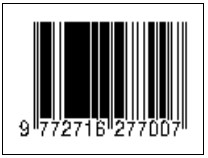EFEKTIVITAS PENEGAKAN HUKUM CYBER MELALUI SURAT EDARAN KAPOLRI NO. SE/2/II/2021 DALAM MENANGANI BERITA HOAKS
Abstract
The background of the National Police Chief General Listyo Sigi Prabowo issued a Circular (SE), SE/2/II/2021 relating to the ITE Law No. 19 of 2016 is to anticipate hoax news circulating in the community through cyber media. The circular contains eleven points, including asking police investigators to prioritize restorative justice in resolving cases by prioritizing peaceful steps in resolving cases related to reports of alleged violations of the ITE Law. The problems of this research focus on two questions, namely: (1) How is the
effectiveness of cyber law enforcement in dealing with hoax news? (2) How to implement the circular letter of the National Police Chief No. SE/2/II/2021 related to UU ITE? This study uses a normative juridical method with a Sociology study approach of law. The research specifications, namely theories, concepts, legal principles and legal regulations related to hoax news based on SE Chief of Police No. SE/2/II/2021. Based on this study, it can be concluded that, 1) the effectiveness of cyber law enforcement in dealing with hoax news using UU ITE no. 19 of 2016 is still not maximized even though it is threatened with a sentence of six years and a fine of 1 billion rupiah. Factors affecting the effectiveness of the law must be reviewed from several aspects; (a) the legal factor itself, (b) the law enforcement officer factor, (c) the facilities and infrastructure factor, (d) the community factor, (e) the cultural factor. 2) Implementation of the Circular Letter of the Chief of Police No. SE/2/11/2021 related to the ITE Law which emphasizes restorative justice has not been able to minimize or reduce hoaxes because if the perpetrators just apologize, they will not be punished and the case is considered finished. The guidelines in No. SE/2/11/2021 have not answered the issue of hoaxes that lead to criminalization and have the potential to open new criminalization spaces for the interpretation of an act that is considered defamation.
Keywords: Hoax, Law, Cyber
References
Agus Rahardjo, Cybercrime-Pemahaman Dan Upaya Pencegahan Kejahatan Berteknologi, Bandung, Citra Aditya Bakti, 2002.
Budi Agus Riswandi, Hukum dan Internet di Indonesia, Yogyakarta, UII Press, 2003.
Budi Gunawan dan Barito Mulyo Ratmono, Kebohongan di Dunia Maya: Memahami Teori dan Praktiknya di Indonesia, Jakarta, Kepustakaan Popular Gramedia, 2018.
Elizabeth Longworth, The Possibilities For Legal Framework For Cyberspace- Including New Zealand Perspective, Theresa Fuentes Et.Al Editor, The International Dimesions Of Cyberspace Law, Law Of Cyberspace Series, Vol.1, Aldershot, Ashgate Publishing Limited, 2000.
Indrianto Seno Adji, Korupsi Dan Hukum Pidana, Jakarta, Kantor Pengacara & Consultan Hukum Prof. Oemar Seno Adji & Rekan, 2002.
Mahrus Ali, Dasar-Dasar Hukum Pidana,
Jakarta, Sinar Grafika, 2015.
B. Peraturan Perundang-undangan
Undang-Undang Republik Indonesia Nomor 1 Tahun 1946 Tentang Peraturan Hukum Pidana.
Undang-Undang Republik Indonesia Nomor 8 Tahun 1981 Tentang KUHAP.
Undang-Undang Republik Indonesia Nomor 19 Tahun 2016 Tentang Informasi dan Transaksi Elektronik.
Peraturan Kepolisian No. 8 Tahun 2021 Tentang Penanganan Tindak Pidana Berdasarkan Keadilan Restoratif.
C. Sumber Lain
Ana Maria F. Pasaribu, “Kejahatan Siber Sebagai Dampak Negatif Dari Perkembangan Teknologi Dan Internet Di Indonesia Berdasarkan Undang- Undang No. 19 Tahun 2016 Perubahan Atas Undang-Undang No. 11 Tahun 2008 Tentang Informasi Dan Transaksi Elektronik Dan Persfektif Hukum Pidana”, Jurnal Fakultas Hukum Universitas Sumatera Utara, Medan. 2017.
Dedi Rianto Rahadi, “Perilaku Pengguna Dan Informasi Hoaks Di Media
Sosial”, Journal Manajemen Dan Kewirausahaan, Vol. 5. No. 1. 2017.
Dewi Maria Herawati, “Penyebaran Hoaks dan Hate Speech sebagai Representasi Kebebasan Berpendapat”, Jurnal Promedia, Vol. II, No. 2, 2016.
Hanik Chumairoh, “Ancaman Berita Bohong di Tengah Pandemi Covid-19”, Jurnal Vox Populi, Volume 3, Nomor 1, Juni 2020.
Lailatul Utiya Choirroh, “Pemberitaan Hoaks Perspektif Hukum Pidana Islam”, Jurnal Hukum Pidana Islam, Vol. 3, No. 2, 2017.
Maulida Riani, “Penegakan Hukum Pidana Terhadap Penyebaran Berita Bohong Di Sosial Media Analisis Terhadap Uu No.
19 Tahun 2016”, Fakultas Hukum Universitas Sumatera Utara, Medan. 2018.
Muhammad Arsad Nasution, “Hoaks Sebagai Bentuk Hudud Menurut Hukum Islam”, Jurnal Yurisprudentia, Vol. III, No. 1. 2017.
https://kbbi.kemdikbud.go.id/entri/hoaks, diunduh tanggal 1 Maret 2021 jam 12:00 WIB.





